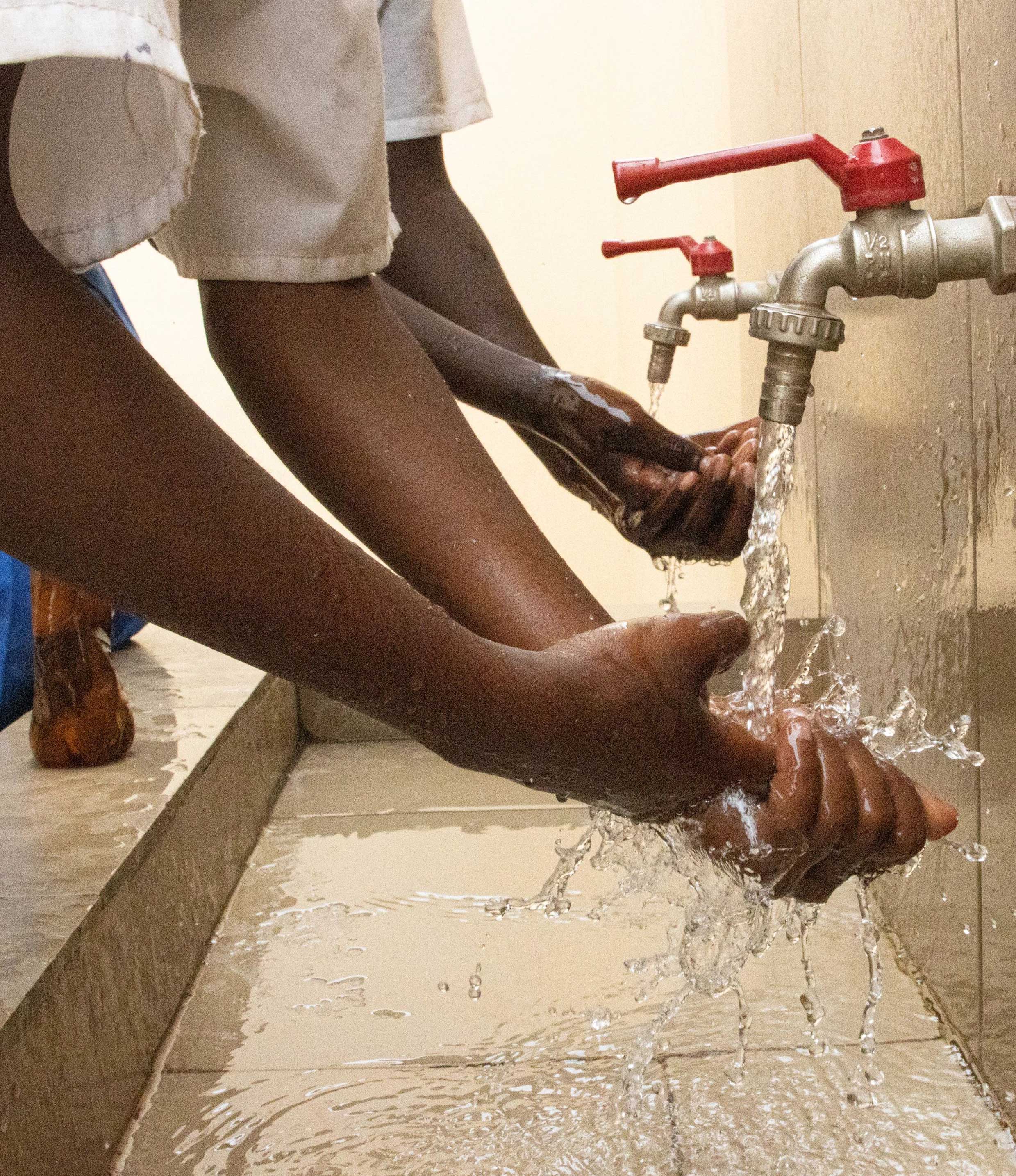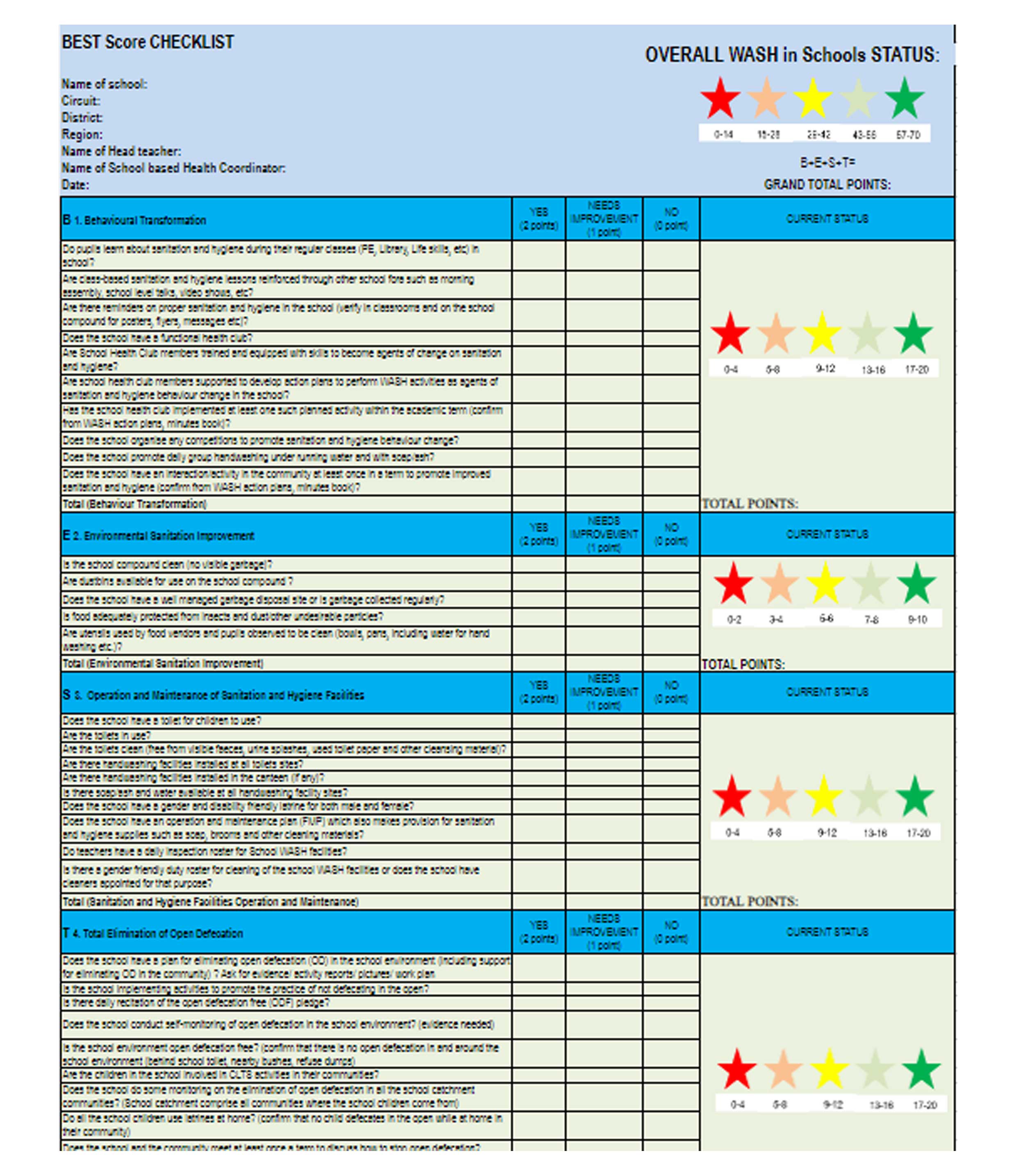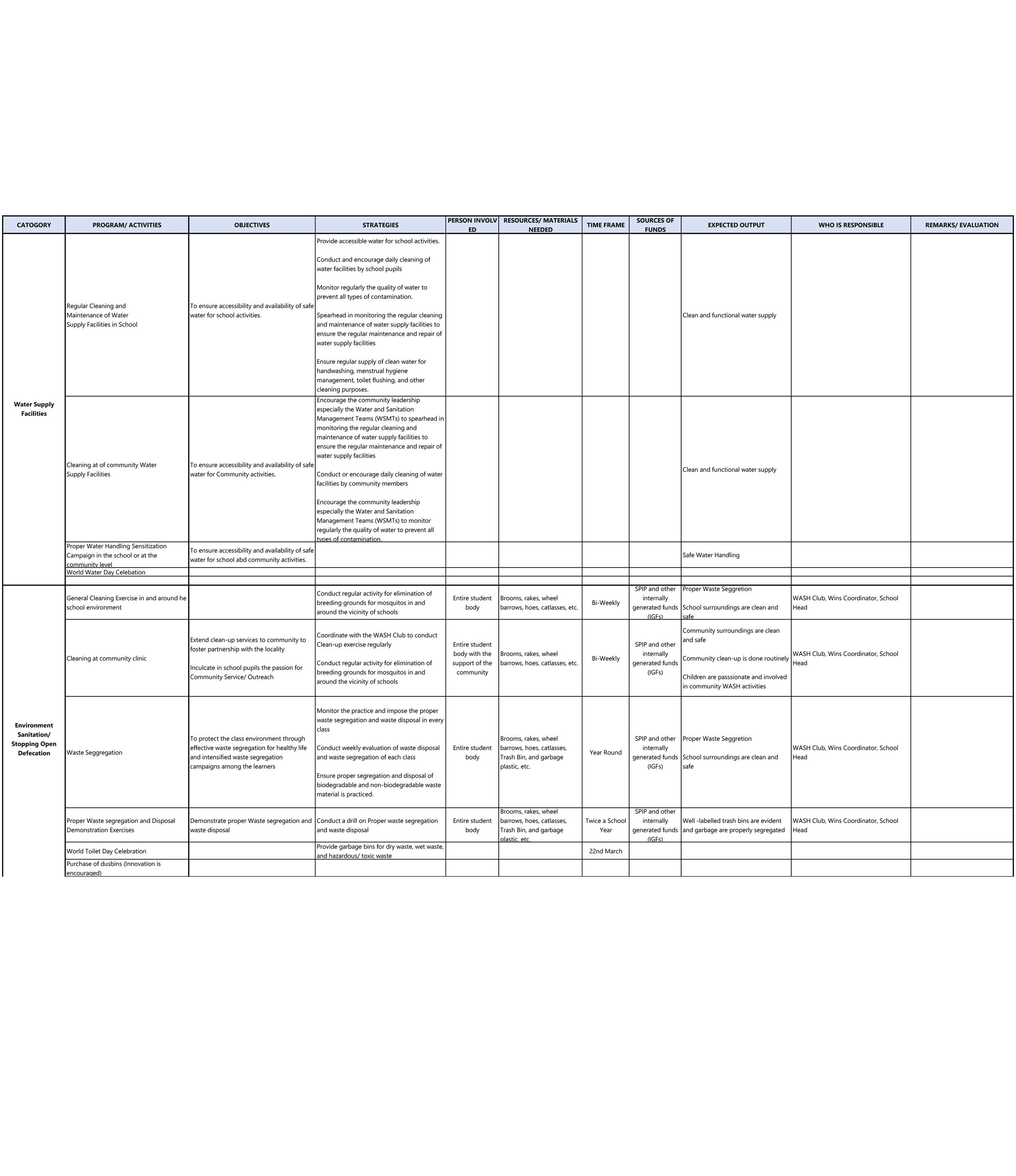

School-led Wash Planning
School-led Wash Planning

After conducting the school WASH survey, we are now involving the school community (teachers, parents, and students) in creating and executing an action plan to enhance and sustain WASH services at school. This plan is crucial for turning commitments into a comprehensive roadmap for becoming a WASH-friendly school. It addresses challenges, improvements, maintenance tasks, responsible individuals, budgeting, and funding sources.
The action plan necessitates a robust strategy for financial resource mobilization, ensuring sustainable funding. Moreover, it should incorporate a rigorous maintenance plan and school-led monitoring system to steadfastly uphold the WASH-friendly school status in the long run.
Key Concepts
-
Unity in Planning: Involve the entire school community, from teachers to parents and support groups, in crafting the action plan.
-
Sustainable Steps: After assessing WASH, choose doable, lasting improvements with everyone's input.
-
Financial Strategy: Discuss practical ways to gather funds.
-
Budget for Maintenance: Include budgets for keeping WASH facilities clean and functional in every action plan.
-
Community Endorsement: Share and get the whole community's approval for the school's WASH plan.
-
Continuous Improvement: Include budgets for keeping WASH facilities clean and functional in every action plan.
-
Budget for Maintenance: Keep refining the action plan during self-assessments and joint monitoring visits.
-
Regular Checks: Periodically review how the action plan is working.
-
Stakeholder Involvement: Engage institutions in joint monitoring visits for effective execution.

Facilitator is developing life cycle cost table for the financial management of the school borehole, Burkina Faso.
Your Step-by-Step Guide to Develop a School WASH action Plan
Actionable steps for WASH-friendly school planning:
-
WASH Training: Begin with training the school community in the WASH-friendly school approach, emphasizing a comprehensive audit of WASH conditions.
-
Baseline Assessment: Launch a baseline assessment involving all stakeholders during the action plan development phase (initial diagnosis).
-
Environmental Education: Incorporate environmental education and practical application using the Blue Schools Kit.
-
Target Weaknesses: Identify specific weaknesses and deficiencies for targeted improvements.
-
Collaborative Prioritization: Work together to prioritize actions incrementally, following UNICEF's Three Star Approach.
-
Budget Planning: Establish a budget for activities, interventions, and identify potential funding sources.
-
Action Plan Presentation: Present the action plan comprehensively in a table format, detailing actions, responsibilities, timelines, and costs.
-
Community Engagement: Share the annual action plan with parents and the community during a meeting.
-
Visible Reminder: Display a large copy of the finalized action plan in a prominent, weather-protected location for easy access and as a visual reminder.
-
Continuous Updates: Periodically update the action plan based on recommendations from joint monitoring visits and community self-assessments.
-
Regular Progress Meetings: Hold regular meetings (e.g., quarterly) to review progress and address challenges encountered during action plan implementation.
Resources
Basic Guide for School Directors, Teachers, Students, Parents and Administrators
The WASH-Friendly Schools Training Guide is used to train parents, teachers and school Leaders on the WASH-friendly school approach and engage them to develop coordinated action plans.
Download - PDF
SDC: Blue School Kit
The Blue Schools Kit is a compilation of inspirational support materials that guides schools in their pathway to improve water and sanitation services and integrate education on the environment.
UNICEF Field Guide: Three-star Approach for WASH in Schools
The Three Star Approach for WASH in Schools is designed to improve the effectiveness of hygiene behavior change programs for children and complements UNICEF’s broader child-friendly schools initiative and GIZ’s ‘Fit for School’ approach.
Download - PDF
CRS Template – School WASH Needs Assessment
Template prepared by CRS Ghana to conduct an initial school WASH assessment and monitor progress.
Download - Excel
CRS Module – WASH in Schools Action Planning
This module developed by CRS Ghana provides guidance on developing a comprehensive action plan that encompasses all aspects of WASH, from infrastructure development to behavior change initiatives.
Download - PDF
O&M Calculate the Cost
THIS O&M APP SUPPORTS YOU: Calculating Operation & Maintenance Costs for Implementing Water, Sanitation and Hygiene in Schools
Download - PDF








